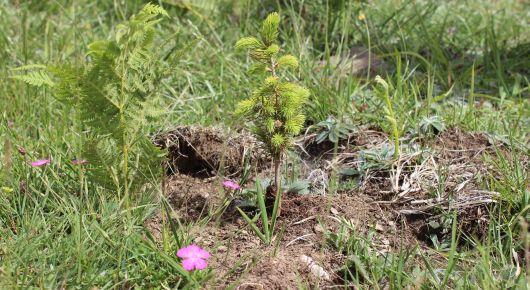Joint FAO–UNECE sessions focus on future of European forests

Protecting and restoring forests, as well as unlocking their potential to ensure livelihoods, green development, and a more sustainable outlook for humanity, were key points discussed during European Forest Week and Foresta2021 by the Joint Session of the UNECE Committee on Forests and the Forest Industry and the FAO European Forestry Commission.
Under the theme “The future of forests,” the joint session convened experts, policymakers, business leaders, and national delegates from Europe, Central Asia, and North America in a virtual format with the aim to increase the forest sector's visibility and influence pan-European and global dialogue on forests. The event provided an opportunity to highlight innovative and strategic approaches for greater social, economic, and climate resilience as foreseen by the United Nations Decade of Ecosystem Restoration (2021–2030).
“The year 2020 brought with it a new reality that most of the world had not previously imagined, and that most of us were not prepared for,” said Vladimir Rakhmanin, FAO Assistant Director-General and Regional Representative for Europe and Central Asia. “While the economic and social recovery from the COVID-19 pandemic remains a challenge, ‘green recovery’ is an opportunity we shouldn’t miss.”
The agenda of the sixth European Forest Week (22–28 November) focused on urban and peri-urban forest ecosystems, non-wood forest products, career opportunities for forestry graduates, subregional cooperation to prevent major forest fires, and ways to use wood for carbon capture and storage technology, as well as the future of forests in a changing climate and the potential for innovative next-generation forest products to replace carbon intensive goods.
“The social, economic, and climate resilience of our planet is only possible if forest ecosystems are healthy and diverse, covering greater areas than currently,” said Olga Algayerova, Executive Secretary of UNECE. “To this end, our goal is to create good governance structures for better forest management, and provide data and analysis, as well as space for sharing experiences and ideas.”
Foresta2021 (22–25 November) highlighted the forestry industry’s opportunities to lead climate mitigation and adaptation efforts by shaping a green economy that promotes sustainable forest management and embraces the circular economy. During the sessions, participants pointed out that emissions reduction, clean air, biodiversity habitat, non-toxic clothing material, sustainable building products, and food production all depend on sustainable forest management.
Forest sector outlook study launched
A new joint FAO–UNECE report launched during the session shows how demand for wood and other non-wood forest products and services, including biodiversity conservation and carbon sequestration, is rising and changing. The first publication of its kind to cover the entire UNECE region, the Forest Sector Outlook Study 2020 –2040 provides a holistic, evidence-based policy tool to support a sustainable balance between forest conservation and production.
In the panel discussion “Future of forests,” attendees agreed that the forestry industry needs to find the right balance for forests’ contribution to climate change mitigation and adaptation and the right incentives to scale up the next generation of forest products in order to replace emissions-intensive and non-renewable materials in a range of sectors.
The UNECE region has important forest resources. Findings from the Forest Products Annual Market Review 2020–2021, co-published by FAO and UNECE during Forest Week, reveal that eight out of the top ten roundwood exporting countries are located in this region. Some of the biggest roundwood importing countries now greatly depend on the region’s forests.
29 November 2021, Rome, Italy
